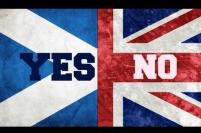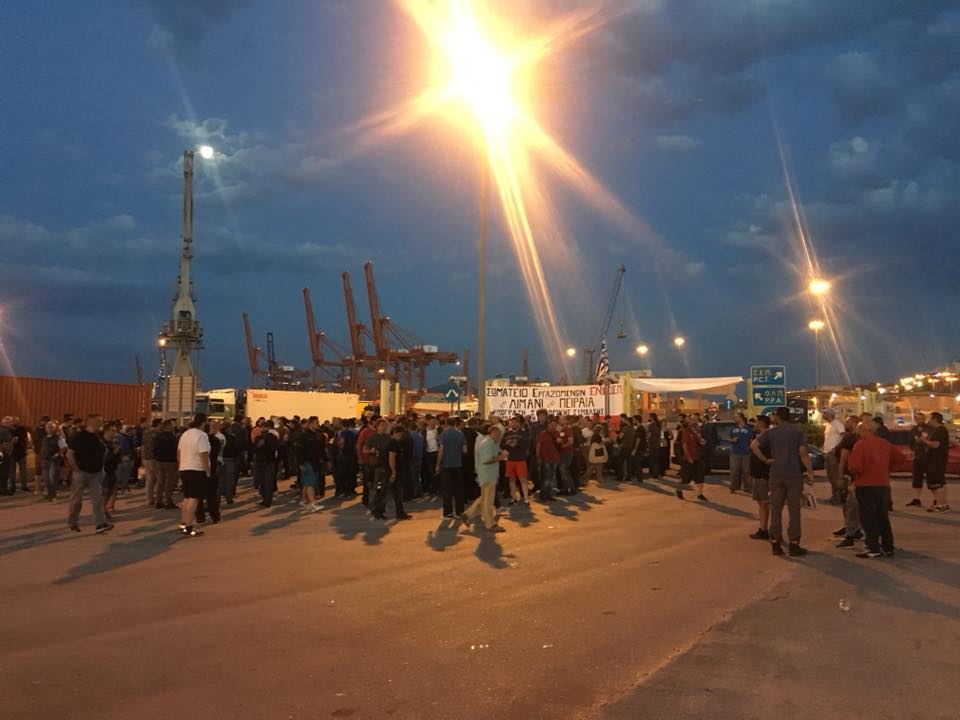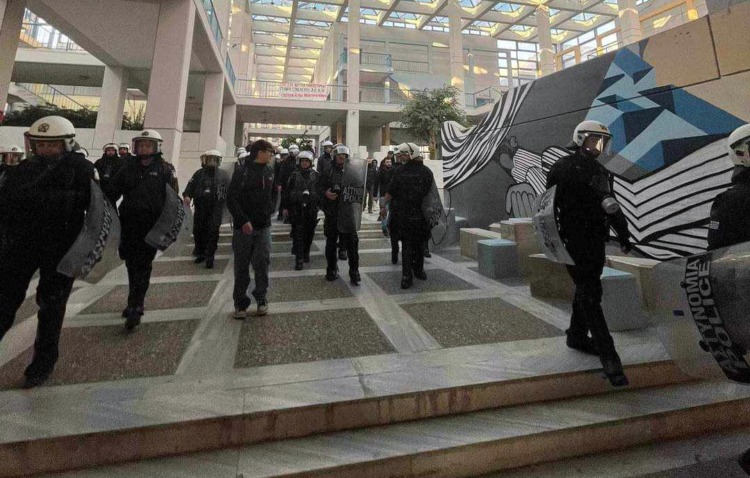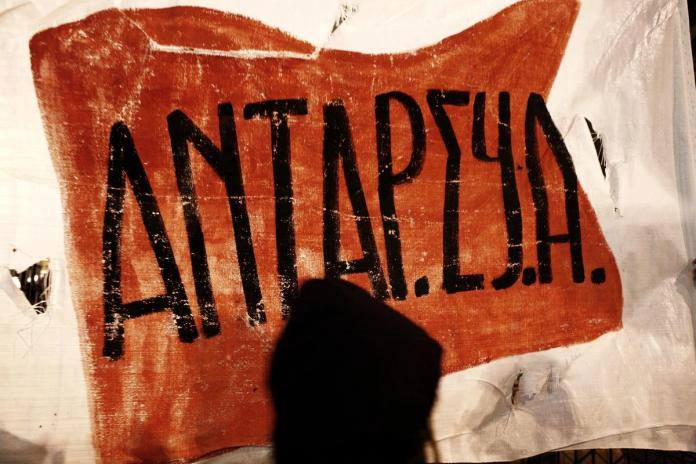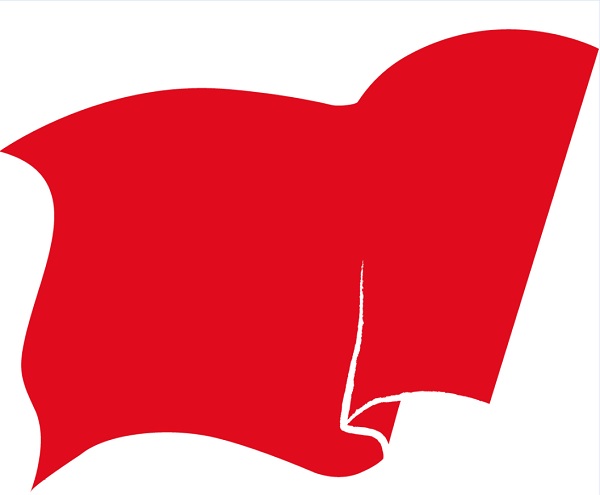- Δευ, 15/09/2014 - 17:44
|
ANTARSYA UK: On the Scottish referendum
On the Scottish referendum The independence referendum procedures and the hopes that these create
Historical Background The ‘United Kingdom of Great Britain’ was created with the signing of the 1707 ‘Acts of Union’ by the English and Scottish parliaments, which was met with intense popular discontent in Scotland and riots in major Scottish cities. In the three centuries that followed, the demand for greater autonomy or full independence of Scotland continued to remain topical, even if it was not expressing the majority of the population. It is worth mentioning the 1787 massacre of striking weavers by British troops in Calton for example, which is generally recognised as marking the beginning of an organised Scottish labour movement. The weavers’ banner on the day of the massacre showed Scotland’s national hero of the Wars of Independence, William Wallace, striking down the beast of tyranny. Between 1947 and 1950, around two million Scots signed the “Scottish Covenant” which was a petition to the United Kingdom government to create a home rule Scottish parliament. In the 1960s and 1970s, along with the decline of Scottish industry and the discovery of oil reserves in the North Sea, we have the rise of the electoral percentages of the “centre-left” “Scottish National Party” (SNP) in whose program, independence was a central goal. In 1979 in exchange for supporting the Labour party government in the British parliament, the SNP won consent for a referendum on the creation of a Scottish parliament with limited powers. Although “YES” collected 52% of the votes, one of the referendum conditions, was that 40% of the total electorate should vote in favour in order to make it valid. This did not happen (the turnout was 63.6%, so only 32.9% of the electorate voted “YES”) so plans for a Scottish parliament were not materialised. In the decade that followed, Thatchers’ policies brought the Scottish industry down on its’ knees, resulting in a surge of unemployment and the dismantling of entire communities. Many Scots saw the London government as a “tyrant they hadn’t voted for” since the Conservative party percentages are traditionally low compared to the rest of the UK in Scotland, while Labour had come first in votes in every national (UK) election since 1959. The subsequent Labour governments continued Thatchers’ neoliberal policies of course, but the psychological effect of the Thatcher era is immense, to the extent that it is even today mentioned as an argument in favour of independence. Hence in 1997, in a new referendum, 74.3% of the electorate voted in favour of a Scottish parliament with powers over matters such as education, health, justice, agricultural policy and limited fiscal policy powers. The first Scottish parliamentary elections were held in 1999. The Scottish electoral system favours coalition governments rather than majority ones (according to many in order to prevent a majority SNP government). Nevertheless, the neoliberal mutation of the traditionally largest party in Scotland, Labour, and the disappointment which that created, lead in the 2011 elections to a triumph of the SNP which formed the first majority Scottish government in recent history. This in turn led to the independence referendum of September 2014. In this case, if there is a “YES” majority, Scotland will be declared an independent state on the 24th of March 2016 and the Union existing since 1707 will come to an end. It is worth noting that all Scottish residents, regardless of nationality have the right to vote in the referendum (while Scots who are residents of other countries do not), something that shows that the demand for independence is not necessarily a nationalist one, but fundamentally a social one. The ‘NO’ block On the “NO” side are the three major British parties (Conservatives, Labour, Liberal Democrats) who have engaged in a terrorising orgy, warning of the dire economic consequences of independence, stating for example that Scotland will not be able to keep the pound as official currency and that this will bring disaster. It is indicative that the official “NO” campaign, “Better Together” has been nicknamed “Project Fear”. It is obvious however that it is the ruling class (in both England and Scotland) who is afraid, for whom the UK in its current form, as an imperialist, champion in the implementation of neoliberal doctrines state and unions that have not recovered from the defeat that suffered in the Thatcher era yet, is a real paradise. Although the majority of the left wing organisations actively support “YES”, there are some of them together with independent voices supporting “NO”. One of their arguments is that the desire for independence is an expression of a nationalist, regressive diversion. The dominant nationalism in Britain however, which continuously wages wars, targets immigrants etc praises the nation as British, not Scottish. It is characteristic that “NO” is supported by all the far-right organisations such as the nationalistic and racist UKIP (UK Independence Party) (which managed a victory in the recent Euro elections, with 27.5% of the vote in the UK, but only 10.5% in Scotland) and the fascist BNP (British National Party), EDL (English Defence League), SDL (Scottish Defence League) etc. Another argument is the danger of splitting the labour movement. Workers’ unity however, especially in modern times, is not determined by the constitutional form of the state, but by the desire for solidarity and joint action. Irish workers can belong to the same unions as UK workers and Canadian workers can belong to same unions as US workers – there is no reason why Scottish workers cannot belong to the same unions as English and Welsh workers. Other militants prefer to bypass the Independence question in order to focus on the “real problems” such as austerity etc. The left does not however have the luxury of “choosing the battlefield” at a time when the Scottish people are engaged in politics more than ever before, with political discussions dominating every aspect of public life and a large number of “YES” supporters without previous political experience actively participating and often organising at grassroot level. The “YES” block In favour of independence, to the left of the SNP is the Radical Independence Campaign (RIC), a front consisting of the Greens, the Scottish Socialist Party (SSP), organizations of the revolutionary left (such as the Socialist Workers Party (SWP), the International Socialist Group (ISG) etc.) as well as independent militants. Given that the Scottish people have been engaged in politics more than ever after many years, the referendum is a golden opportunity for the weak, until now, Scottish left to spread its’ ideas and its’ program and to a small extent it has succeeded. Nevertheless, we believe that a radicalization of society has not taken place to a satisfactory degree, partly due to the small size of the Scottish left and partly in order to avoid tensions with the large “ad hoc” ally, the SNP. The publication of the “White Paper” of the SNP for example, a 670-page document which describes the vision and policies of the SNP in an independent Scotland, was not followed by the publication of a “Red Paper”. When observing the debate within the left, one is often left with the impression that independence would automatically, in a magic way transform Scotland into a social democratic paradise, since “all our woes originate from Westminster, we will finally get rid of the Tories since we are more left wing than the English”. Apart from hiding a peculiar “left nationalism”, the above is both naive and dangerous. Indeed, Scotland is a favourable ground for the left compared to the rest of the UK. In the last Euro elections, the Conservatives received only 17.2% of the vote and the UKIP 10.5% in Scotland (whereas they received 23.9% and 27.5% in the whole of the UK) while the newly created Scottish parliament, despite its’ neoliberal composition has voted against university tuition fees and against a number of anti-labour measures which were implemented in the rest of the UK. “More left-wing” to a large extent of the voting body, means SNP and stronger Labour however. And one should not forget that the most likely scenario (at least based on present strength) in an independent Scotland is a majority government of the SNP, which is likely to emerge stronger from a victory in the referendum. And it’s needless to refer to past “centre-left” tragedies for someone to understand what that could mean. The SNP itself for example, although it’s enlisted to the left of Labour, argues in favour of a tax system with low taxes for corporations in order to “boost competitiveness”. Furthermore, in order to face “Project Fear”, it has made a significant right-wing turn and is now in favour of joining the EU and NATO. After the publication of the “White Paper” where all of the above are outlined and the retention of the monarchy and the pound were being supported, even right wing commentators wondered what would the point of independence be, if nothing is essentially to change. Creating an independent state without its’ own currency, which is subordinate to the crown and a member of the EU and NATO will not be an improvement of the current situation. Nobody of course expects a systemic party to do the anti-systemic work. That is the role of the left which should participate in the independence debate on its own terms, those of real social needs, describe the Scotland it envisions and prepare people for the struggles that will follow the referendum, whatever its’ result. Dismantling the United Kingdom When observing the independence/not independence campaigns, in the official debates, but also in every aspect of public life, in pubs and on the streets, one observes that it has to a large extent turned into a condemnation-defence debate of the United Kingdom, hence to an extent of neoliberalism and imperialism. Reasonably, one may therefore wonder: “Maybe it’s not the players’ fault (UK) but the games’ (capitalism)?”The answer is of course yes, but the UK is not just any player. Not only is it one of the world leading powers implementing neoliberal doctrines, both during Thatchers’ days and in the present, but it is also a key player in countless wars from its’ creation until today. One of the strongest arguments in favour of independence is that it will be a blow to British imperialism. And that will benefit not only Scots, but the entire world. Besides, one of the main slogans of the “YES” campaign, which is supported by the SNP as well (which is in favour of joining NATO of course…) is the withdrawal of the British nuclear weapons which are currently stationed in Scotland. And … after the referendum? The vast majority of pro-independence supporters do not see it as an end of itself, but rather as a means to changing Scotland for the best. Feeling indignant and not able to change Britain from within, they are ready to grab the opportunity being given to them. And it is touching to see people who were not interested in politics before, actively participating and organising in local groups. A potential “YES”, despite the dangers of complacency that it hides, it is likely to increase peoples’ confidence, proving that it is worth participating in public matters and to convince people to take their lives into their own hands. Moreover, by its’ very nature, independence would put forward a number of questions which have presently been answered in favour of the capital. If they are answered in favour of workers’ rights in Scotland, independence will benefit not only Scots, but also all the workers and youth of the United Kingdom who will realise their power and the fact that they are entitled to an alternative political system. On the other hand, a potential “NO” will simply authorise the status quo and bring disappointment. This is why we support independence, not as a matter of principle because of some national oppression, but as a tactical move. At the same time we believe that the left should at every chance emphasise that independence is only the beginning. In any case, it is obvious that whatever the outcome of the referendum is, a political earthquake will follow it. In the case of a “YES” vote, all the large UK parties will have suffered a historical defeat, while the same can be said about the SNP in the case of a “NO” vote. The unfavourable scenario of course, is that sections of the left may experience a “NO” victory with disappointment as a definitive divorce from the hope of building a society based on social needs with direct participation of the people. Independence is not territorial, nor does it mean that we divide capitalist structures and build another kingdom based on them. Real independence must mean that in practise, the neighbourhood assemblies that have been set-up become cells of resistance. That when young people speak about “Another Scotland” they actually envision this Scotland as a just society where on an internationalist perspective they fight together not only with the workers, the unemployed and the youth of England, Wales and Ireland, but also those of Greece, Argentina, Spain and with all the peoples of the world for the anti-capitalist overthrow. ANTARSYA UK Categories: |
